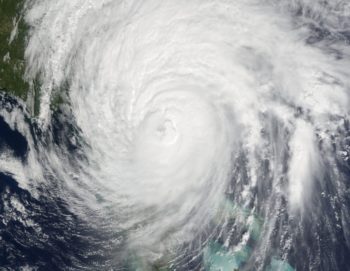 What a wonderful environmental parable is now unfolding around a meeting of 150 countries held last week in Kigali, the capital of Rwanda, to discuss an international ban on yet another greenhouse gas, to aid their wish to halt global warming.
What a wonderful environmental parable is now unfolding around a meeting of 150 countries held last week in Kigali, the capital of Rwanda, to discuss an international ban on yet another greenhouse gas, to aid their wish to halt global warming.
Back in 1987, when there was a huge panic over the hole opening up in the ozone layer over the Antarctic, 197 countries signed the Montreal Protocol, the world’s first major environmental treaty, agreeing to phase out the use of chlorofluorocarbons (CFCs), used in everything from refrigerators to hair-sprays, which were supposedly causing the ozone to disappear.
How far this has actually been responsible for the fact that the ozone hole has recently been shrinking is still a matter of scientific dispute. But CFCs have been widely replaced by hydrofluorocrabons (HFCs), used in refrigeration and air-conditioning, which, because they are short-lived, were viewed not to be damaging to the ozone layer.
However the penny has finally dropped that these HFCs are even more powerful greenhouse gases than the CFCs. So the Montreal Protocol must now be amended to ban these wicked “pollutants” as soon as possible, not least in light of last December’s Paris agreement that supposedly pledged the world to prevent global temperatures rising by more than 1.5 degrees Celsius.
As usual, of course, the West, led by US Secretary of State John Kerry, is absolutely gung-ho for the ban to be introduced as soon as possible, in not more than five to 10 years. As Mr Kerry told yet another conference earlier this year, the world’s output of HFCs into the atmosphere is “equivalent to the emissions from 300 coal-fired power plants every single year”.
But, equally inevitably, other countries, led by China and India, say they cannot possibly ban HFCs so quickly, not before 2031. Indeed, as we know, many “developing” countries, again led by China and India, as already the world’s first and third largest CO2 emitters, have made clear that they have every intention of building thousands more coal-fired power stations, which will massively to increase those emissions anyway.
So whatever fudged compromise emerges from Kigali, it will do no more to halt global warming than that much-puffed but non-binding Paris Treaty itself. The consolation from all this, of course, is that whatever has actually been causing the modest rise in global temperatures over the past two centuries will not be influenced in any way by anything the politicians believe or do, regardless of the colossal price we are all paying for their vainglorious make-believe.
The real global warming disaster, as I continually observe (and even wrote a book under that title to demonstrate why), is not those supposedly melting ice caps, rising sea-levels and the rest, but the suicidal energy policies being inflicted on us by politicians like Mr Kerry, who have simply been carried away into la-la land by mindless group-think.
















